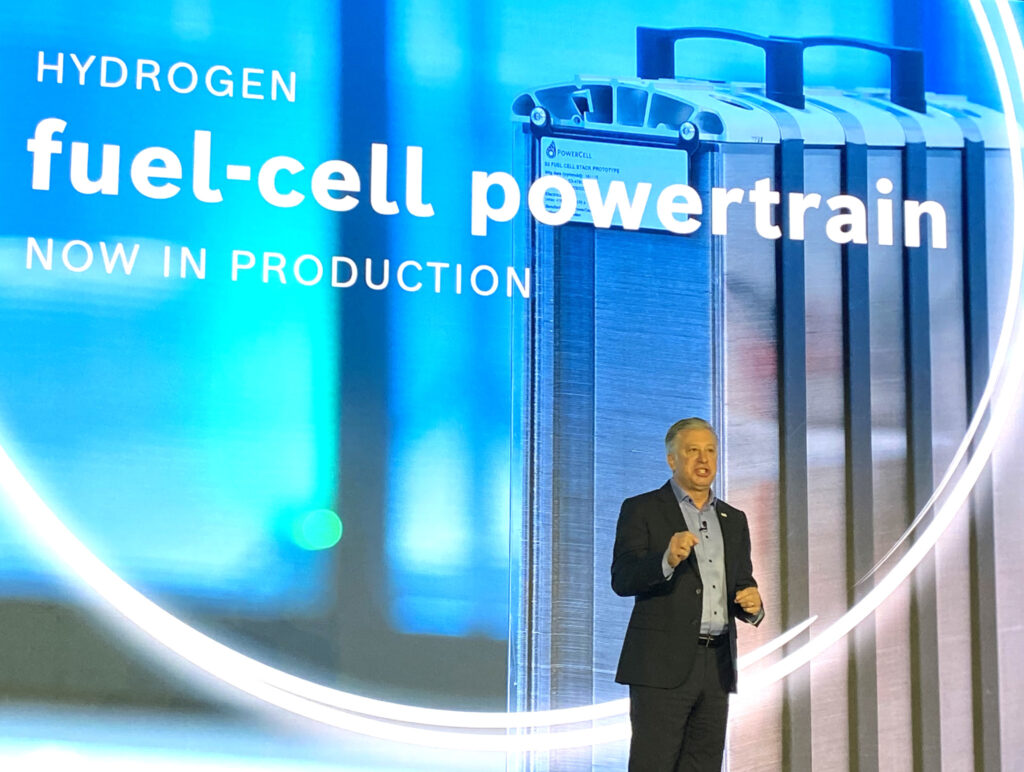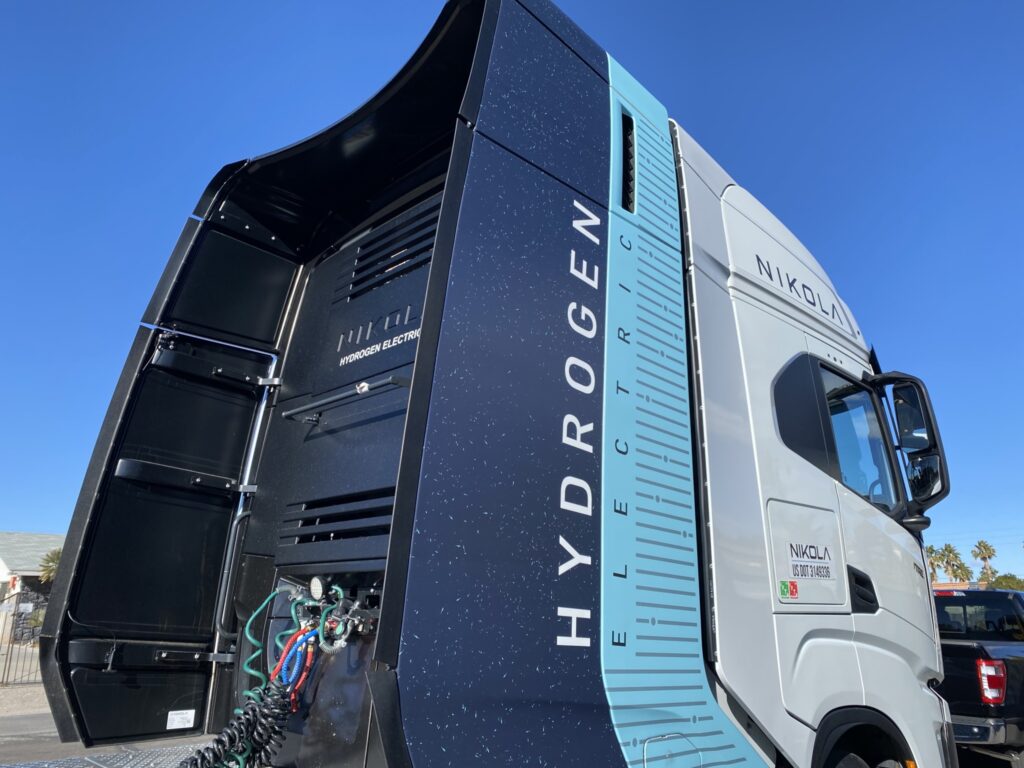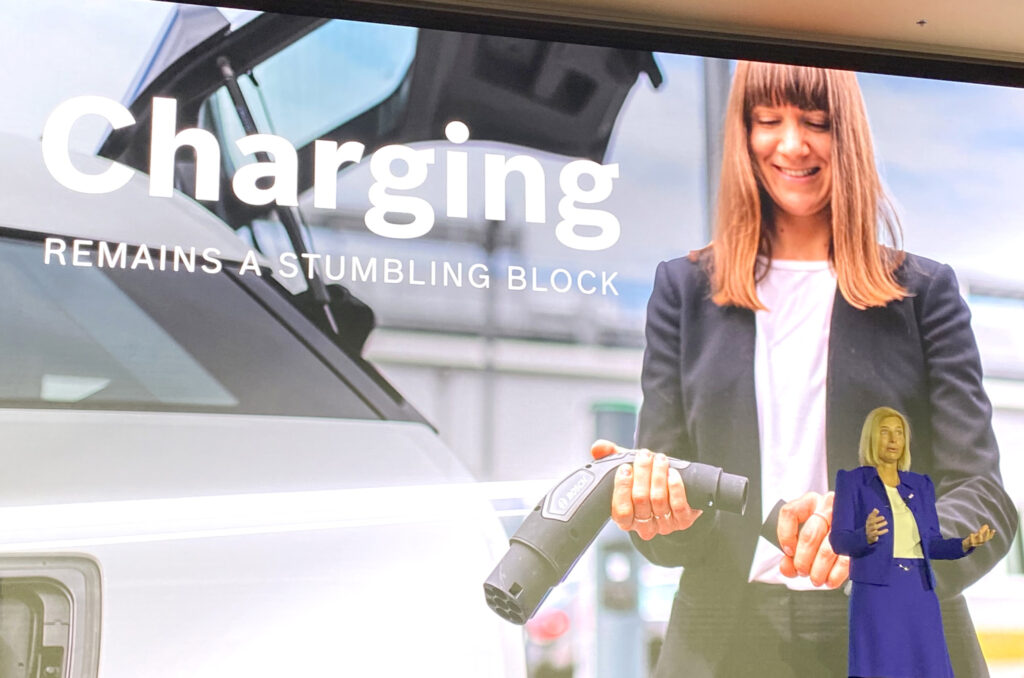Bosch emphasizes hydrogen’s role in trucking
Bosch is developing an array of systems to electrify vehicles around the world, but the global manufacturer also continues to emphasize its growing focus on hydrogen as it explores a greener future.
“We are looking beyond traditional energy sources for more sustainable alternatives. We are focusing in particular on hydrogen,” member of the board of management Tanja Ruckert said during a presentation at the Consumer Electronics Show (CES) in Las Vegas. “We believe it will be central to meeting our future climate-neutral energy needs.”
That involves “investing heavily in hydrogen technologies and developing solutions along the hydrogen value chain,” added Mike Mansuetti, president of Bosch in North America. “A major thrust of our efforts is the hydrogen fuel cell powertrain, which we believe is the path to electrification for heavier vehicles.”

Last summer, Bosch entered ‘volume production’ of its mobile fuel cells in Germany, and it has already secured orders from truck manufacturers in Europe, the U.S., and China. Powered models include the Nikola Tre, which is offering demonstration runs during the annual technology showcase.
Bosch previously projected that one in five new trucks weighing six tons or more will have a fuel cell powertrain by 2030.
Hydrogen combustion engine coming
But the hydrogen-powered focus extends beyond fuel cells alone. Bosch is also a system provider for port- and direct-injection engines, and will launch its first hydrogen combustion engine later this year.
“It will be suitable for commercial vehicles in the on- and off-road segments, such as heavy-duty longhaul trucks and construction machines,” Mansuetti said. And it will be ‘practically carbon-neutral’ when fueled with green hydrogen that’s produced using sustainable energy sources.
“This technology can offer the performance of a diesel engine,” he promised.

Tapping into hydrogen hubs
The dual strategy aligns with initiatives like the U.S. government’s $7 billion investment into hydrogen hubs.
Those hubs will represent an “important building block” to establish hydrogen fueling infrastructure, Mansuetti said. “Our goal is to help drive forward the clean-energy economy in North America. This is an area where we can contribute our expertise in the production and provisioning of hydrogen.”
The commitments to battery-electric vehicles have hardly been sidelined, however.
“Electric solutions come with the potential of climate-neutral operations baked in,” Ruckert said. “Mobility in particular is already well on its way to becoming more electric.”
In one related initiative, Bosch will produce silicon carbide chips that promise to increase electric car range by up to 6% when compared to silicon-based chips, and reduce energy losses by up to 50%. That work will be conducted at a US$1.5-billion facility being established in Roseville, Calif.

“We must end our reliance on fossil fuels and we must do it quickly,” Ruckert said. But she added a note of caution.
“Unrealistic targets get us nowhere,” she said. “We must focus on solutions that are feasible as well as affordable.”
Have your say
This is a moderated forum. Comments will no longer be published unless they are accompanied by a first and last name and a verifiable email address. (Today's Trucking will not publish or share the email address.) Profane language and content deemed to be libelous, racist, or threatening in nature will not be published under any circumstances.